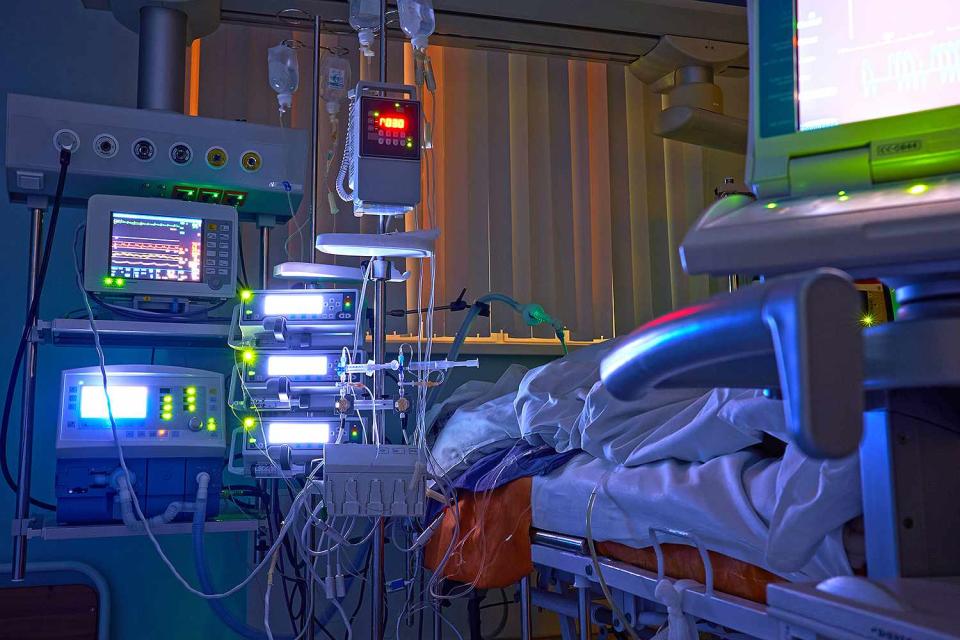Changing the Sound of Hospital Alarms Could Improve Patient Care, Study Says
Switching the sound of a hospital beep to a more “musical” one can improve patient care — and avoid “alarm fatigue”

Getty
Hospital equipmentThe beeping alarms used in hospitals have been “widely criticized” for going off too frequently, causing what’s known as “alarm fatigue”
A new study says that using a more “musical” sounding alarm could help improve patient care
The study found that xylophone sounds were “recognizable” and “less annoying” than traditional hospital alarms
The beeping alarms that are intended to alert hospital staff to a patient’s needs have been “widely criticized” for their “perceived annoyance.” But a new study says that changing the way they sound could combat what’s known as “alarm fatigue.”
“Alarm fatigue contributes to missed alarms and medical errors that result in patient death, increased clinical workload and burnout, and interference with patient recovery,” a report in Advanced Critical Care, a peer-reviewed journal for critical care nurses, said.
However, a study published in Science Direct said simply changing the alerts from the standardized beeps to more musical sounds could help.

Getty
A hospital patient presses an alert button.Related: Jeremy Renner Revisits 'Amazing' Hospital Staff Who 'Saved My Life'
“Current standards have widely recognized shortcomings concerning learnability, detectability, and annoyance,” the study, conducted in part by Joseph Schlesinger, an anesthesiologist at Vanderbilt University Medical Center, and Michael Schutz, a music cognition researcher at McMaster University, said.
The reported added, “Our findings reveal musical sounding alarms are comparably recognizable, yet significantly less annoying than alarm signals common in medical environments. These outcomes provide a promising first step to improving patient care through musically informed alarm design.”
The study noted that part of the problem isn’t just the sound of the alarms, but the fact that there are simply too many alarms.
“Observational studies estimate 85–95% of alarms in critical care units are not clinically relevant. This preponderance of non-urgent alarms reflects a ‘better safe than sorry’ philosophy to alarm signaling. Although frequent alarms help clinicians stay apprised of changes in patients’ health, they can introduce unintended perceptual problems such as inattentional deafness — where high cognitive load leads medical personnel to miss important alarms,” the study said.

Getty
A hospital siren goes off.Related: Canadian Woman Dies After 7-Hour Wait in Emergency Room: 'The System Is Obviously Broken'
One study found that out of 2,184 alarms, more than half (a total of 1,394 alarms) “were categorized as false alarms.”
However, by comparing “standard alarm timbre” with a”synthesized xylophone timbre,” Schlesinger and Schutz found that “ musical sounding alarms are comparably recognizable, yet significantly less annoying than alarm signals common in medical environments.”
“These outcomes provide a promising first step to improving patient care through musically informed alarm design,” the study said.
Never miss a story — sign up for PEOPLE's free daily newsletter to stay up-to-date on the best of what PEOPLE has to offer, from celebrity news to compelling human interest stories.
For more People news, make sure to sign up for our newsletter!
Read the original article on People.


